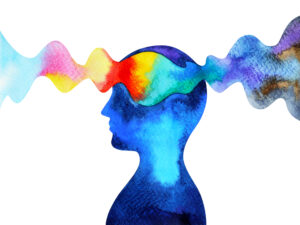stress sickness is a very real phenomenon that can affect anyone, regardless of age or occupation. While stress is often seen as a normal part of life, too much of it can take a toll on our physical and mental health. In this blog post, we will discuss what stress sickness is, the symptoms associated with it, and how to deal with it.
Contents
What Is Stress Sickness? 
Stress sickness is a condition that can occur when a person is under stress. It occurs when the body is exposed to prolonged periods of stress. It can cause a variety of symptoms, including fatigue, headaches, and difficulty concentrating. Stress sickness is not a medical condition, but it can be debilitating.
What Are The Symptoms?
Some common symptoms include:
- Headache
- Muscle tension or pain
- Fatigue
- Difficulty sleeping
- Upset stomach
- Anxiety or depression
- Irritability
- Trouble concentrating
- Memory problems
- Feeling overwhelmed
- Avoiding things that trigger stress
So, these are some examples of symptoms that can be associated with stress sickness. Some people may experience one or two of the symptoms while others may experience several.
What Is The Link Between Stress And Sickness? 
Stress and sickness are linked in a number of ways. Stress can lead to sickness, and sickness can lead to stress. Furthermore, stress can also worsen the symptoms of an existing illness, and make it more difficult to recover from an illness.
There are a number of reasons why stress and sickness are linked. One reason is that stress can weaken the immune system. This means that people who are stressed are more likely to get sick because their bodies are not able to fight off infection as effectively.
Another reason why stress and sickness are linked is that stress can cause changes in the body that make people more susceptible to illness. For example, stress can cause changes in blood pressure, heart rate, and breathing. These changes can make it more difficult for the body to fight off infection.
Finally, stress can make it more difficult for people to recover from illness. This is because stress can interfere with sleep, and can also lead to changes in appetite and eating habits. These changes can make it more difficult for the body to heal.
What Are The Causes?
Stress sickness is a very real phenomenon, and it can have some serious consequences if left unchecked. Some of the risk elements of stress sickness include:
Feeling Overwhelmed Or Hopeless
Stress sickness is a condition that can be caused by feeling overwhelmed or hopeless. When someone feels like they are unable to cope with their stressors, they may start to experience physical symptoms such as headaches, nausea, and fatigue. In severe cases, stress sickness can lead to more serious health problems such as heart disease and ulcers.
Feeling Like You’re Not Good Enough
When individuals feel like they are not good enough, they may start to experience stress sickness. This is because they are constantly putting pressure on themselves to meet unrealistic standards. As a result, they become overwhelmed and their immune system becomes weaker. This can lead to them becoming sick more often.
Putting Yourself Under Too Much Pressure
The stress response is a natural reaction to perceived threats that helps us mobilize our resources to deal with the situation. This stress response is essential for survival; however, when we are constantly under stress, it can take a toll on our physical and mental health. When the stress response is activated too often or for too long, it can lead to what is known as stress sickness.
Being Pessimistic In Your Outlook
Pessimism has been linked to stress sickness in a number of ways. One study found that people who are pessimistic are more likely to experience stress-related health problems, such as high blood pressure and heart disease. This may be because pessimists tend to ruminate on negative events and dwell on bad news, which can lead to chronic stress and anxiety.
Additionally, dwelling on negative thoughts can prevent a person from enjoying positive experiences and living in the present moment. This can cause them to miss out on important aspects of their life and further contribute to stress and anxiety.
Finally, negative thinking patterns can also lead to unhealthy coping mechanisms such as substance abuse or disordered eating. These coping mechanisms may provide temporary relief from stress but will ultimately make the situation worse in the long run.
Setting Unrealistic Goals For Yourself
When we set unrealistic goals for ourselves, we are effectively putting unnecessary stress on our bodies and minds. This can lead to what is known as stress sickness, which is a condition characterized by physical and mental symptoms that arise from stress.
Stress sickness can manifest in many different ways, but some common symptoms include headache, fatigue, difficulty concentrating, irritability, and muscle tension.
Being Perfectionistic In Your Thinking
When individuals are perfectionistic in their thinking, they often become overwhelmed with stress and anxiety. This is because they set excessively high standards for themselves and feel as though they must always meet these unrealistic expectations. As a result, they often put immense pressure on themselves to perform perfectly, which can lead to feelings of inadequacy, stress, and anxiety.
One of the most common examples of this is when students are preparing for exams. If they have been raised to believe that their academic success is the only thing that matters in life, then they will likely put a great deal of pressure on themselves to do well on their exams. This can lead to stress and anxiety about the exam itself, as well as concern about what others will think if they do not perform perfectly.
Ruminating On Past Failures Or Disappointments
When we ruminate on past failures or disappointments, we are constantly remembering these unfavorable experiences in our minds. This can lead to a stress sickness response in our bodies, as our mind and body become hyper-vigilant to any potential threats.
This can manifest itself in physical symptoms such as headaches, stomachaches, and difficulty sleeping. It can also lead to emotional symptoms such as anxiety, depression, and irritability.
What Are The Consequences?
Stress sickness can have a number of consequences, both physical and mental. Some of these are:
Weak Immune System
stress sickness is a condition in which stress weakens the immune system. This can happen due to several reasons, such as not getting enough sleep, being under constant stress at work, or having a poor diet. When the immune system is weakened, it becomes easier for viruses and bacteria to cause illness.
For example, if you catch a cold or flu virus, you may experience more severe symptoms than someone who has a strong immune system. Stress sickness can also make it difficult to recover from illness because the body takes longer to heal when the immune system is weak.
Upset Stomach
Stress sickness can result in an upset stomach for a number of reasons. First, when we’re stressed, our bodies produce more of the stress hormone cortisol. This increase in cortisol can lead to increased acid production in the stomach, which can then lead to gastritis ( inflammation of the stomach lining) and ulcers.
Additionally, stress can also lead to changes in gut motility, meaning that food may move more slowly through the digestive system, leading to abdominal pain, bloating, and constipation. Finally, stress can also trigger or worsen inflammatory bowel diseases like Crohn’s disease and ulcerative colitis.
Insomnia
Stress sickness can result in insomnia for a number of reasons. Taking excessive stress can cause individuals to have difficulty falling asleep or staying asleep. In addition, stress can lead to physical discomfort that makes it difficult to sleep.
For example, stress may cause muscle tension, headaches, or stomachaches. Finally, stress can make it difficult to quiet the mind and relax enough to fall asleep. All of these factors can contribute to insomnia and make it difficult to get a good night’s rest.
Fatigue
Stress sickness is a condition that can occur when a person is under stress. The stress can be from a variety of sources, such as work, family, or finances.
One of the most common symptoms of stress sickness is fatigue. This is because the body is constantly in a state of fight-or-flight, which uses up a lot of energy. The body also doesn’t get enough rest when it’s under stress, which can further contribute to fatigue.
Depression
Stress can cause a person to feel depressed. When stressors accumulate, the individual may become overwhelmed and feel unable to cope. This can lead to a feeling of hopelessness and despair, which are common symptoms of depression.
Stressful life events, such as the death of a loved one or losing a job, can trigger a depressive episode. Chronic stress, such as caring for an ill family member or living in poverty, can also lead to depression. This can further contribute to feelings of depression and make it more difficult to recover from episodes of stress sickness.
Difficulty Concentration Or Making Decisions
When our stress response is triggered, it releases a hormone called cortisol. Cortisol helps us to deal with stress by giving us a boost of energy. However, if we’re constantly under stress, our bodies can become overloaded with cortisol. This can lead to difficulty concentrating or making decisions, as well as other symptoms of stress sickness.
For example, if you’re constantly worrying about your job or finances, you may find it hard to focus on anything else. You may also start to feel overwhelmed and stressed out all the time.
Burnout
This is a state of physical, emotional, and mental exhaustion that can be caused by prolonged stress. It occurs when you feel overwhelmed, unable to cope, and unable to meet demands.
Symptoms of burnout include feeling exhausted all the time, having trouble sleeping, feeling frazzled and stressed out most of the time, feeling like you’re not doing enough even when you’re working around the clock, and experiencing physical health problems such as headaches or gastrointestinal issues.
How Can Therapies Help?
If you’re feeling stress sickness, there are a few therapies that may help you manage and overcome it.
Cognitive Behavioral Therapy 
CBT is a stress management technique that helps people change their thinking and behavior patterns in order to better deal with stress. This type of therapy can be used to help people learn how to better cope with stress, manage their stress levels, and avoid stress-related health problems. It can also help people who are dealing with chronic stress, such as caregivers, military personnel, and first responders.
During CBT sessions, patients will work with a therapist to identify their negative thoughts and beliefs about stressors. They will then learn how to replace these negative thoughts with more positive and realistic ones.
In addition, patients will be encouraged to practice these skills in their everyday lives. CBT has been shown to be an effective treatment for stress sickness, and it can help people manage their stress levels and avoid stress-related health problems.
Exposure Therapy
Exposure therapy is one of the most effective ways to deal with stress sickness. It involves gradually exposing yourself to the things that trigger your stress, anxiety, or fear. This can be done in a safe and controlled environment, such as a therapist’s office. Through exposure therapy, you can learn to manage your stress response and eventually overcome your stress sickness.
It starts with activities that are only slightly stressful and gradually works up to activities that are more challenging. For example, if you’re afraid of heights, you might start by looking at pictures of tall buildings before moving on to standing on a small stool. Then, you would progress to standing on a chair, standing on a balcony, and so forth.
It’s also important to make sure that you’re exposure activities are realistic. This means that they should closely resemble the real-life situations that trigger your stress. For example, if you’re afraid of flying, it wouldn’t be helpful to sit in a plane simulator that doesn’t take off. However, it would be helpful to sit in a plane simulator that takes off and lands.
Dialectical Behavioral Therapy
DBT is a form of therapy that helps people change unhealthy behaviors and thought patterns. It teaches skills like mindfulness, emotional regulation, and distress tolerance. These skills can help people manage stress and avoid stress-related problems like anxiety, depression, and substance abuse.
One way that DBT helps people deal with stress is by teaching them how to be more mindful. Mindfulness means being present in the moment and paying attention to your thoughts, feelings, and surroundings without judgment.
Emotional regulation is another key skill taught in DBT. This means learning how to effectively manage your emotions so that they don’t take over your life.
Distress tolerance is the third major skill taught in DBT. This means learning how to deal with difficult situations in a healthy way. It includes skills like accepting reality, managing stress without using drugs or alcohol, and finding positive ways to cope with pain.
Acceptance And Commitment Therapy
ACT can help you accept your stress and learn to live with it. It is a type of therapy that can help people manage stress sickness. ACT helps people to accept their thoughts and feelings, and to commit to taking action in line with their values. This can help people to reduce stress and improve their well-being.
ACT helps people manage stress by teaching them how to accept their thoughts and feelings, and to commit to taking action in line with their values.
Herein, are a number of things you can do to help yourself. First, it is important to understand that stress is a normal part of life. It is not something that you should try to avoid. Second, you need to identify your values and what is important to you. Once you know your values, you can start to take action in line with them. This will help you to reduce stress and live a more meaningful life.
Mindfulness-Based Stress Reduction
MBSR can help you be more mindful of your stress and learn to manage it. This is a form of mindfulness training that helps people become more aware of their thoughts, feelings, and bodily sensations. The goal of MBSR is to help people manage stress and stress-related conditions such as anxiety, depression, and chronic pain.
One of the key components of MBSR is learning how to focus one’s attention on the present moment. This can be done through various techniques such as meditation, breathing exercises, and mindful movement. By paying attention to the present moment, people are able to let go of worry about the future or stress about the past.
Another important aspect of MBSR is learning how to accept oneself and one’s experiences without judgment. This includes accepting both positive and negative experiences. Acceptance helps people to let go of stress and anxiety that are associated with trying to control everything.
How Can Medications Help? 
There are many different types of medications that can help manage stress sickness. Some of the most common include anti-anxiety medications, antidepressants, and beta-blockers.
- Anti-anxiety medications can help to reduce the symptoms of anxiety, such as racing thoughts, heart palpitations, and restlessness. Antidepressants can help to improve mood and reduce the symptoms of depression, such as fatigue, low motivation, and feelings of worthlessness.
- Beta-blockers can help to reduce the physical symptoms of stress, such as sweating, shaking, and heart palpitations.
Some common medications include Benzodiazepines (also known as tranquilizers), Xanax (alprazolam), and Klonopin (clonazepam).
Consultation with your doctor is highly mandatory before you start taking any of the medications for stress sickness. Don’t take any of them on your own as it would have harsh consequences thereafter.
Medications can be very helpful in managing stress sickness, but it is important to remember that they are only one part of the equation. In order to fully overcome stress sickness, it is also important to implement healthy coping mechanisms and make lifestyle changes.
This might include things like regular exercise, relaxation techniques, and journaling. Everyone is different, so it is important to find what works best for you.
How Can Self-Care Strategies Help? 
There are a number of self-care strategies that may help manage and overcome stress sickness. Some of these include:
- Identifying and managing stress triggers: Try to identify what your stress triggers are and then take steps to avoid or remove them from your life.
- Taking breaks: When you’re feeling overwhelmed by stress, it can be helpful to take a break even if it’s just for a few minutes. Step away from whatever is causing you stress and take some deep breaths. Maybe go for a walk or listen to calming music. The important thing is to give yourself a chance to relax.
- Eating healthy: A healthy diet can go a long way in helping your body deal with stress. Make sure to eat plenty of fruits, vegetables, and whole grains.
- Getting enough sleep: Aim for seven to eight hours of sleep each night. If you’re having trouble falling asleep or staying asleep, there are a number of things you can try, such as drinking chamomile tea before bed or using a noise machine to drown out any disruptive sounds.
- Exercising: Exercise is another great way to relieve stress. It helps release endorphins, which have mood-boosting effects.
- Practicing relaxation techniques: Relaxation techniques such as yoga, meditation, and deep breathing can help you cope with stress. There are many different ways to do these techniques, so find the one that works best for you.
- Inculcating hobbies: Stress can also be managed by taking up a new hobby or activity that you enjoy. Doing something that you’re passionate about can help take your mind off of stressors and give you a sense of enjoyment and satisfaction.
These are just a few of the many self-care strategies that can help manage stress sickness. Try out different techniques and see what works best for you.
Conclusion
Stress sickness is a very real thing and can have a significant impact on our health. It is important to learn how to deal with stress in order to avoid stress sickness. There are many different ways to deal with stress, and what works for one person may not work for another. However, some stress management techniques that may help include yoga, meditation, aromatherapy, and exercise. If you are struggling to cope with stress, it is important to seek professional help. A therapist can assist you in learning how to better manage your stress levels and improve your overall mental health.
For more information, please contact MantraCare. Stress can have both physical and mental effects on the body, leading to negative consequences such as anxiety, depression, and even physical illnesses. If you have any queries regarding Online Stress Counseling experienced therapists at MantraCare can help: Book a trial Stress therapy session









